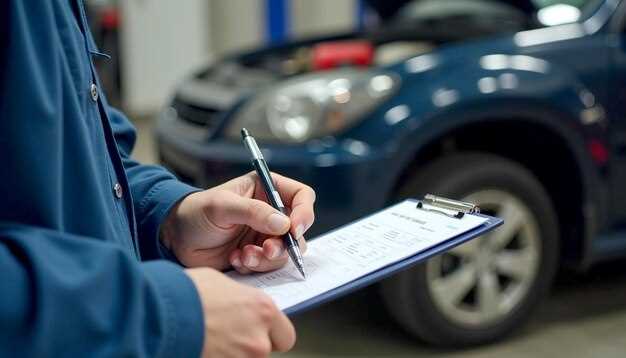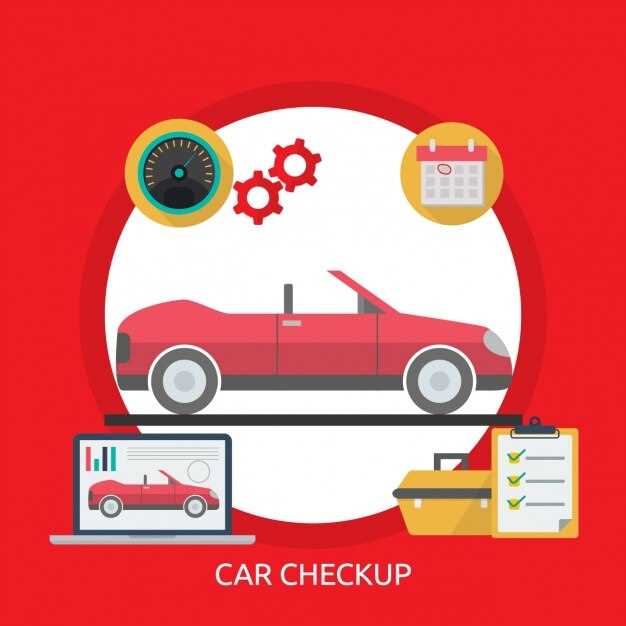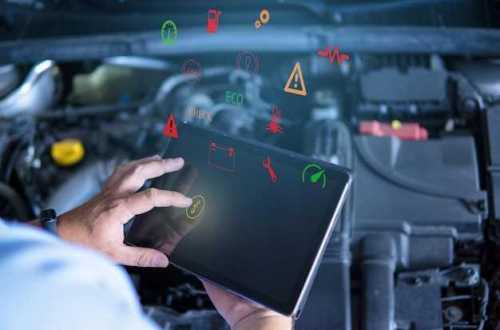
Regular vehicle maintenance is crucial for ensuring the longevity and performance of your car. Establishing a service schedule and adhering to it at specified intervals can significantly reduce the risk of unexpected breakdowns and costly repairs. A proactive approach to car care not only enhances safety but also improves fuel efficiency and overall driving experience.
In this comprehensive guide, we will outline a detailed maintenance checklist designed for all types of vehicles. Each section will highlight essential tasks that should be performed at regular intervals, ensuring that your car remains in optimal condition. By following this checklist, you can save time and money while prolonging the life of your vehicle.
Whether you are a seasoned car owner or new to vehicle maintenance, understanding what services your car requires is key. This checklist aims to empower you with the knowledge needed to take control of your car’s health, making it easier to stay on top of necessary tasks and avoid hassle down the road.
Regular Fluid Checks: Engine Oil, Coolant, and Brake Fluid

Regular fluid checks are essential components of a comprehensive car maintenance schedule. Ensuring that your engine oil, coolant, and brake fluid are at appropriate levels can significantly extend the life of your vehicle and enhance its performance.
Engine oil is crucial for lubricating engine components, reducing friction, and dissipating heat. It is advisable to check the engine oil level at regular intervals, typically every month or before long trips. Additionally, changing the oil every 3,000 to 5,000 miles, depending on your vehicle and oil type, is essential for optimal engine function.
Coolant, or antifreeze, plays a vital role in regulating engine temperature and preventing overheating. Checking the coolant level and condition should be part of your maintenance routine at least twice a year. This ensures that your cooling system operates efficiently, especially in extreme weather conditions. Flushing the cooling system and replacing the coolant every two years is also recommended to prevent corrosion and debris buildup.
Brake fluid is integral to your vehicle’s braking system, affecting safety and performance. Regular maintenance checks should include inspecting the brake fluid level and clarity. It is advisable to replace brake fluid every two years or if it appears contaminated. Maintaining proper brake fluid levels is crucial for effective braking, especially under high-stress situations.
In conclusion, sticking to a regular schedule for fluid checks and maintenance intervals will help you avoid costly repairs and keep your vehicle running smoothly. Invest time in these checks to ensure your car remains reliable and safe on the road.
Tire Maintenance: Rotation, Alignment, and Pressure Monitoring
Tire maintenance is essential for ensuring vehicle safety and performance. Proper care will extend the lifespan of your tires and enhance your driving experience. The key elements of tire maintenance include rotation, alignment, and pressure monitoring.
Tire Rotation should be performed at regular intervals to promote even tire wear. According to automotive experts, a rotation schedule every 5,000 to 7,500 miles is recommended, but always refer to your vehicle’s manual for specific guidelines. Regular rotations help balance the wear across all tires, preventing premature failure and improving handling.
Wheel Alignment is crucial for maintaining proper vehicle handling and improving tire lifespan. Misalignment can cause uneven tire wear and affect fuel efficiency. It is advisable to have your alignment checked at least once a year or whenever you notice symptoms like pulling to one side or uneven tire wear. A professional service will adjust the angles of the wheels to the manufacturer’s specifications, ensuring optimal performance.
Tire Pressure Monitoring is vital for safety and efficiency. Maintaining the correct tire pressure improves vehicle handling, fuel economy, and extends tire life. Check the tire pressure monthly and before long trips. Most vehicles are equipped with a Tire Pressure Monitoring System (TPMS) that alerts you when tire pressure is low. It is crucial to measure tire pressure when the tires are cold for the most accurate reading.
By adhering to a consistent maintenance schedule and following recommended intervals for tire rotation, alignment, and pressure monitoring, you can enhance the safety, performance, and longevity of your vehicle’s tires. Regular service will not only save you money in the long run but also contribute to a more enjoyable driving experience.
Filter Replacements: Air, Cabin, and Fuel Filters Timing

Regular replacement of filters is crucial for maintaining vehicle performance and ensuring a clean environment inside the car. The three main types of filters include air filters, cabin filters, and fuel filters. Understanding the appropriate service schedule for each is essential for optimal vehicle operation.
The air filter typically requires replacement every 15,000 to 30,000 miles, depending on driving conditions. Dusty or polluted environments may necessitate more frequent changes, while cleaner conditions might allow for longer intervals. Regular inspection is advisable to determine if a replacement is needed sooner.
The cabin air filter, which cleans the air entering the vehicle’s interior, should generally be replaced every 15,000 to 25,000 miles. This interval can vary based on usage and local air quality. A clogged cabin filter can lead to reduced airflow and unpleasant odors, making timely replacement important for comfort and health.
Fuel filters are critical for protecting the engine from contaminants in the fuel system. Most manufacturers recommend replacing the fuel filter every 30,000 to 50,000 miles. Neglecting this replacement can result in engine performance issues and costly repairs down the line. It is essential to adhere to the service schedule specified in the vehicle’s manual for optimal fuel system health.
In summary, adhering to the recommended intervals for air, cabin, and fuel filter replacements is vital for vehicle maintenance. A proactive approach to filter service can enhance engine efficiency, improve air quality inside the vehicle, and extend the lifespan of essential automotive systems.





